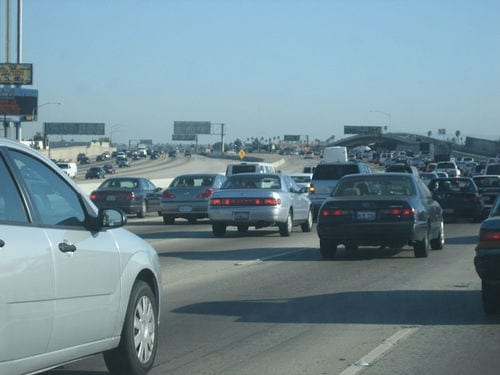A fatal crash in California will be the first to reveal the way in which the $1 million policy provides coverage.
The ride share company, Lyft, which was first founded in 2012 and that has moved into 20 cities has been facing some controversy with regards to the auto insurance coverage that protects the company, its drivers, and their customers, and now it will be put to the test.
Near Sacramento, California, there was a fatal accident on Halloween involving a Lyft driver.
This represents the first time that the auto insurance policy will be tested in terms of its coverage. The terrible accident occurred in the evening when Shane Holland, a 24 year old, was riding in a Lyft car that he had called. While traveling down Interstate 80, the vehicle swerved in order to avoid a car that had stalled, when it spun out and collided with two trees. Holland was killed, while the driver and another passenger in the vehicle were both injured.
This is the first fatal accident involving a Lyft vehicle since the company’s creation and therefore a test of its auto insurance.
 In its two and a half years of existence, Lyft had never before experienced a fatal accident. The reason that this is now being seen as important in terms of insurance protection is that ride share services – which are also offered by companies such as Uber and Sidecar – have come under some scrutiny with regards to whether or not the coverage that they have is sufficient.
In its two and a half years of existence, Lyft had never before experienced a fatal accident. The reason that this is now being seen as important in terms of insurance protection is that ride share services – which are also offered by companies such as Uber and Sidecar – have come under some scrutiny with regards to whether or not the coverage that they have is sufficient.
At the moment, Lyft has $1 million in liability insurance coverage, on top of another $1 million in under-insured/uninsured protection. It is believed that, regardless of who is found to be at fault for this fatal accident, it is more than likely that the company’s insurance policy will be able to provide the necessary coverage.
According to Personal Insurance of California general counsel, Kara Cross, “If the Lyft driver was at fault, then the $1 million liability policy should cover the accident.” Cross also added that “If someone else was at fault and they were not insured or their limits were not adequate to cover the accident, then Lyft’s $1 million uninsured/underinsured motorist coverage should apply.”
Spokesperson for Lyft, Erin Simpson, also stated that the auto insurance carried by the company is sufficient for this type of incident.



I am so glad the passenger gets have this coverage. The Lyft driver, however, does not. He will need to file his claim with his personal insurance and when it comes to light this driver was driving for Lyft his insurance company will not cover him and will most likely drop him. Lyft will then cover his collision, but there is a $2500 deductible. Insurance for drivers has come a long way since the early days of TNC’s but, as you can see, there is still a long way to go. The passenger has always been protected. RIP Shane Holland